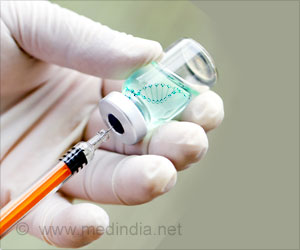Patients with melanoma treated with anti-PD1 drugs have their disease controlled, if they have a more diverse population of beneficial bacteria in the gut.
- Beneficial microbes in the gut may improve the outcome of immunotherapy in patients with melanoma
- Certain strains of bacteria like Bifidobacterium longum, Collinsella aerofaciens and Enterococcus faecium improved the response to immunotherapy
- Gut microbiome is a modifiable risk factor, which can be targeted with diet, exercise, probiotics to improve the effect of immunotherapy
TOP INSIGHT
Certain strains of beneficial bacteria in the intestine help with greater penetration of T cells into tumors and higher levels of circulating T cells that kill cancer cells.
Gut Bacteria Improve Immunotherapy in Melanoma Patients
Some strains of bacteria in the gut appear to enhance T-cell infiltration into the tumor’s microenvironment and destroy cancer cells, thereby increasing the odds of vigorous and durable response.“The strong correlation between specific gut bacteria and clinical response to anti-PD-1 immunotherapy suggests a causal relationship," said study director Thomas Gajewski, MD, Ph.D., the AbbVie Foundation Professor of Cancer Immunotherapy at the University. "Specific bacteria clearly contribute to improved anti-tumor immunity in patients. The gut microbiota has a more profound effect than we previously imagined."
The study is based on research published in the journal Science in November 2015. It was the first study that connected the presence of certain bacterial strains in the intestine to greater potency for immunotherapy. The experiments conducted in mice showed that the composition of the gut microbiome could influence immunotherapy.
“Although the earlier mouse data was striking, we knew there were multiple barriers that can decrease the odds that immunotherapy will work. We initially thought the microbiome was a minor component. But in our current study, these bacteria were a very strong predictor of who would respond," said Gajewski.
For the current study, the research team recruited 42 patients going through treatment for metastatic melanoma. Stool samples were collected from each patient prior the treatment. Anti-PD-1 drug (nivolumab or pembrolizumab) was given to 38 patients and anti-CTLA4 (ipilimumab) was given to four patients.
Patients with a higher ratio of beneficial bacteria to non-beneficial bacteria in the gut showed a reduction in tumor size.
A small experiment was conducted in mice to check the beneficial effect of certain gut bacteria. The researchers collected fecal bacteria from three patients who responded favorably to the treatment and three patients who did not respond. The bacterial strains were then transferred into the intestines of germ-free mice. After a period of two weeks, melanoma cells were implanted in the mice.
The findings of the study suggest that gut microbiome is a gatekeeper for the immune response against the tumor.
"Without microbial support, the immune response just never quite gets going. Our results have pushed us in two directions. We have to start experimenting with probiotics as a way to enhance immunotherapy. We hope to launch a clinical trial using Bifidobacteria in 2018," said Gajewski.
Other Studies on Gut Microbiome and Cancer Treatment
A research conducted by a team at the Gustave Roussy Cancer Campus in Villejuif, France, found that Akkermansia muciniphila contributed to the anti-tumor effect of the microbiome.Another team from MD Anderson Cancer Center in Houston, Texas, found that patients with high levels of the beneficial Clostridiales had greater T cell penetration into tumors and higher levels of circulating T cells that kill cancer cells.
The research team hopes to make a list of both beneficial and harmful gut bacteria in cancer patients and to identify the mechanism by which microbes influence the immune system’s response to cancer treatment.
Reference:
- Vyara Matson, Jessica Fessler, Riyue Bao, Tara Chongsuwat, Yuanyuan Zha, Maria-Luisa Alegre, Jason J. Luke, Thomas F. Gajewski. The commensal microbiome is associated with anti–PD-1 efficacy in metastatic melanoma patients. Science, 05 Jan 2018 DOI: 10.1126/science.aao3290
- Bacteria in the gut modulates response to immunotherapy in melanoma - (https://www.mdanderson.org/newsroom/2017/11/bacteria-in-the-gut-modulates-response-to-immunotherapy-in-melanoma.html)
Source-Medindia
 MEDINDIA
MEDINDIA





 Email
Email










